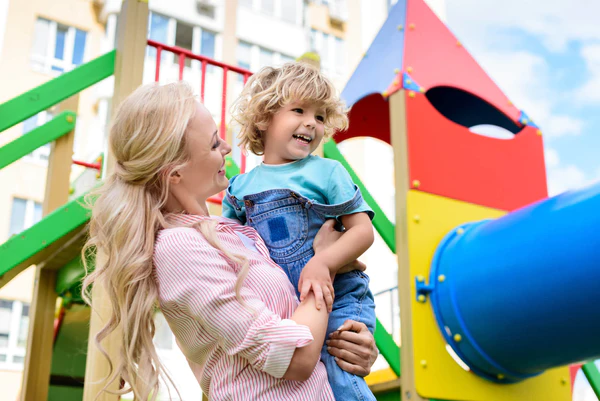Toddlers are tiny explorers, soaking in the wonders of the world around them. Their early years are a crucial period of development, where they build the foundation for future learning and problem-solving skills. While playgrounds offer a delightful space for physical exploration, there are plenty of opportunities to enhance their cognitive and problem-solving abilities during this playful phase. In this guide, we’ll explore strategies and activities that can transform your toddler’s everyday experiences into valuable learning opportunities.
The Importance of Early Education
Early childhood education is a critical component of a child’s development. It’s during these formative years that the brain is most receptive to learning new information and building essential cognitive skills. Places like early learning Chatswood and similar locations provide structured environments designed to foster cognitive, social, and emotional development. However, early education isn’t confined to a classroom setting. Much of a toddler’s learning occurs during everyday activities and play.
The Power of Play: A Playground for Problem-Solving
Play is a toddler’s natural way of exploring and making sense of the world. It’s through play that they develop essential problem-solving skills. Here’s how different types of play can boost their cognitive development:
- Imaginative Play: Building Creativity and Critical Thinking
Imaginative play, such as pretending to be animals, chefs, or superheroes, encourages creativity and critical thinking. It allows toddlers to solve problems and think outside the box as they navigate various roles and scenarios.
- Activities: Provide dress-up clothes, puppets, and props for imaginative play. Encourage your child to create stories and solve problems within their imaginative world.
- Building Blocks and Puzzles: Spatial Reasoning and Problem Solving
Toys like building blocks and puzzles enhance spatial reasoning and problem-solving skills. Toddlers learn how to fit pieces together, create structures, and solve spatial challenges.
- Activities: Offer a variety of building toys and puzzles appropriate for their age. Work on these activities together to encourage cooperation and problem-solving.
- Outdoor Play: Exploring the Environment
Playgrounds and outdoor spaces offer a rich learning environment for toddlers. They can climb, balance, and explore their surroundings, developing motor skills and problem-solving abilities.
- Activities: Visit different playgrounds to expose your child to various challenges. Encourage them to navigate obstacles and try new activities independently, offering guidance when needed.
- Sensory Play: Stimulating the Senses
Sensory play, such as exploring textures, colors, and materials, helps toddlers develop cognitive skills as they investigate cause-and-effect relationships and make connections between sensory inputs.
- Activities: Create sensory bins with items like rice, sand, or water. Include objects of various textures and sizes for your child to explore and experiment with.
- Sorting and Matching Games: Logical Thinking
Sorting and matching games introduce toddlers to logical thinking and problem-solving. These activities help them recognize patterns and make connections between objects.
- Activities: Use everyday objects like colored blocks, buttons, or beads for sorting and matching games. Ask your child to identify similarities and differences.
Problem-Solving at Home: Everyday Learning Opportunities
Everyday activities at home provide numerous opportunities for problem-solving and cognitive development. Here are some strategies to infuse learning into your daily routines:
- Mealtime Math: During meal preparation and eating, involve your child in counting, measuring ingredients, and identifying shapes and sizes of food items. This introduces early math concepts and problem-solving skills.
- Storytelling and Reading: Reading together exposes your child to new words, ideas, and problem-solving scenarios found in books. Encourage them to predict what happens next or discuss alternative endings.
- Play-Based Learning: Integrate learning into playtime. For example, while playing with toy animals, discuss their habitats, diets, and characteristics to stimulate curiosity and problem-solving.
- Daily Routines: Involve your child in everyday tasks like setting the table, dressing, or cleaning up. These routines provide opportunities for sequencing and problem-solving.
- Exploration Activities: Offer open-ended activities like art projects, science experiments, and nature walks. These activities encourage observation, exploration, and creative problem-solving.
Encourage Curiosity and Inquiry: Asking Questions
Toddlers are naturally curious and full of questions. Encourage their inquisitiveness by answering their questions patiently and promoting further exploration. Asking open-ended questions can also stimulate critical thinking and problem-solving skills.
- Examples: “What do you think will happen if…?” “Why do you think this works that way?” “How can we solve this problem together?”
Patience and Persistence: Learning from Mistakes
As toddlers explore and experiment, they will encounter challenges and make mistakes. Encourage them to persevere and demonstrate that learning from mistakes is a valuable part of problem-solving. Celebrate their efforts and successes, no matter how small, to build their confidence.
Limit Screen Time: Promoting Active Learning
While age-appropriate educational apps and shows can offer learning opportunities, it’s essential to limit screen time and prioritize active, hands-on learning experiences. Interaction with physical objects and people is crucial for cognitive development and problem-solving skills.
Playgrounds of Possibility
Toddlers are natural problem solvers, and their everyday experiences are filled with opportunities for cognitive growth. By incorporating play-based learning, encouraging curiosity, and nurturing their innate problem-solving abilities, we can help toddlers embark on a lifelong journey of discovery and learning. From playgrounds to home activities, every moment is a chance for toddlers to explore, experiment, and develop the problem-solving skills that will serve them well throughout their lives.
